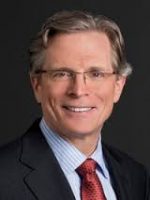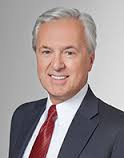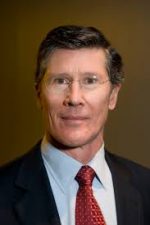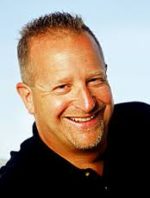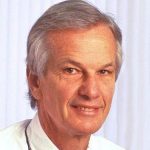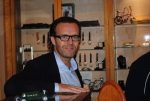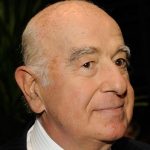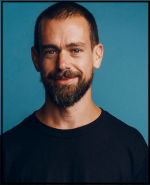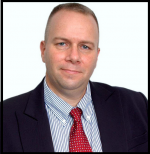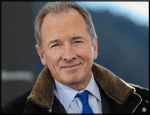John R. Strangfeld is an American businessman. He is the current Chairman, Chief Executive Officer, and President of Prudential Financial.
Career:
Strangfeld has been with Prudential since July 1977, serving in various management positions, including the executive in charge of Prudential's Global Asset Management Group since 1996, Senior Managing Director of The Private Asset Management Group from 1995 to 1996, and Chairman at PRICOA Capital Group (London) Europe from 1989 to 1995. Strangfeld is also a member of the Raven Society, the oldest and most prestigious honorary society at the University of Virginia. He holds the Chartered Financial Analyst designation.
Education:
Strangfeld received a B.S. in Business Administration from Susquehanna University and an M.B.A. from the Darden School of Business at the University of Virginia.
Compensation:
While CEO of Prudential Financial in 2008, John Strangfeld earned a total compensation of $16,302,184, which included a base salary of $970,769, a cash bonus of $3,300,000, stocks granted of $7,207,765, and options granted of $4,678,905.
John Gerard Stumpf (born September 15, 1953) is an American business executive and investment banker. He is the current chairman and chief executive officer of Wells Fargo, one of the Big Four banks of the United States. He became chairman in January 2010. He was named CEO in June 2007, elected to Wells Fargo’s board of directors in June 2006, and has been president since August 2005.
Early life:
A Pierz, Minnesota native, Stumpf grew up as one of 11 children on a dairy and poultry farm. His father was a dairy farmer. His father is of German descent and his mother, Polish descent. He was raised as a Catholic. Stumpf shared a bedroom with his brothers until he was married. Stumpf graduated in the bottom half of his high school class. His bad grades, combined with his limited family finances, resulted in Stumpf obtaining a job as a breadmaker in a Pierz bakery. After a year, Stumpf enrolled in St. Cloud State University on a provisional basis. He eventually obtained a job as a repossession agent at First Bank in St. Paul, Minnesota.
Stumpf earned his bachelor's degree in finance from St. Cloud State University, St. Cloud, Minnesota and his MBA with an emphasis in finance from the Carlson School of Management.
Career:
Stumpf joined Northwestern National Bank, the former Norwest Corporation and predecessor of Wells Fargo, in 1982 in the loan administration department and then became senior vice president and chief credit officer for Norwest Bank, N.A., Minneapolis. He held a number of management positions at Norwest Bank Minneapolis and Norwest Bank Minnesota before assuming responsibility for Norwest Bank Arizona in 1989. He was named regional president for Norwest Banks in Colorado/Arizona in 1991. From 1994 to 1998, he was regional president for Norwest Bank Texas. During his four years in that position, he led Norwest’s acquisition of 30 Texas banks with total assets of more than $13 billion.
In 1998, with the merger of Norwest Corporation and Wells Fargo & Company, he became head of the Southwestern Banking Group (Arizona, New Mexico and Texas). Two years later he became head of the new Western Banking Group (Arizona, Colorado, Idaho, Nevada, New Mexico, Oregon, Texas, Utah, Washington and Wyoming). In 2000, he led the integration of Wells Fargo’s acquisition of the $23 billion First Security Corporation, based in Salt Lake City. In May 2002, he was named Group EVP of Community Banking. In December 2008, he led one of the largest mergers in history with the purchase of Wachovia.
In 2012, Stumpf's total compensation was $22.87 million with a base salary of $2.8 million, $3,300,000 in cash bonuses, $12.5 million in stock granted, and $15,000 in other compensation.
Awards and board positions:
In 2012 Stumpf was included in the 50 Most Influential list of Bloomberg Markets magazine.
In 2013 he received Banker of the Year award.
He serves on the Board of Directors for The Clearing House, the Financial Services Roundtable, Target Corporation, and Chevron Corporation. He also serves on the Board of Trustees of the San Francisco Museum of Modern Art.
He serves on the board of trustees of the San Francisco Museum of Modern Art. He also serves as Member of the California Business Roundtable. Stumpf served as director of National Association since June 27, 2006 and a Member of Litigation Committee at Visa Inc.
John Alexander Thain (born May 26, 1955) is an American businessman, investment banker, and former chairman and CEO of the CIT Group.
Thain was the last chairman and chief executive officer of Merrill Lynch before its merger with Bank of America. He was designated to become president of global banking, securities, and wealth management at the newly combined company, but resigned on January 22, 2009. Ken Lewis, CEO of Bank of America, reportedly forced Thain to step down after several controversies, such as the losses at Merrill Lynch which proved to be far larger than previously estimated, and the award of huge executive bonuses.
Career:
Before he came to Merrill, Thain had been the CEO of the New York Stock Exchange from January 2004 to December 2007. He also worked at Goldman Sachs, as head of its mortgage securities division from 1985 to 1990,and president and co-chief operating officer from 1999 to 2004.
Thain reportedly was one of the runners-up to head Citigroup. Merrill Lynch and Citigroup sought new leaders following the sudden departure of their former CEOs after the disappointing performance in the third quarter of 2007 due to the subprime mortgage crisis.
Thain arranged the sale of Merrill to Bank of America at $29 per share, a 70 percent premium over the market price. The deal valued the brokerage at $50 billion. Thain was expected to be president of global banking, securities and wealth management, a new division at Bank of America, to oversee its corporate and investment bank and most of wealth management business.
Departure from Bank of America:
On January 16, 2009, Bank of America announced that Merrill suffered an unexpected loss of $15 billion for the fourth quarter of 2008. Bank of America CEO Ken Lewis said that, without $138 billion in government assistance, including the infusion of $20 billion from the federal government, he would have pulled out of the Merrill deal, which had been approved by Bank of America shareholders in early December. People close to Lewis say his relationship with Thain was strained by Merrill's massive fourth quarter loss. Lewis himself faced criticism for rushing to buy Merrill for $28 billion after less than two days of due diligence.
On January 22, 2009, on CNBC's The Call, Charlie Gasparino said that Thain was going to meet Lewis later in the day. Gasparino added that Thain's future at Bank of America was in doubt, although it was not certain whether he would be leaving. Gasparino then said that Thain spent $1.22 million to refurbish his office, shortly after he had been named as CEO of Merrill in January 2008.Merrill was still an independent firm at the time, and some analysts predicted that, with Thain as new CEO, the company would be back on track for a strong performance in the midst of disappointing results on Wall Street.
The tension between Thain and Lewis had been building since mid-December and culminated on January 22, 2009 when Lewis flew to New York to meet with Thain. After a 15-minute conversation between the two men, Thain agreed to resign.
Obama administration:
On January 23, 2009, President Obama referred to John Thain by saying "the reports that we’ve seen over the last couple of days about companies that have received taxpayer assistance then going out and renovating bathrooms or offices or in other ways not managing those dollars appropriately." Obama's press secretary Robert Gibbs also said taxpayer money shouldn't go to "line the pockets of people" who've gotten financial assistance. "The American people need to be greatly assured that their hard-earned money is not going to the bonuses or the remodeling of an office at a bank that’s in trouble," Gibbs said.
On January 29, 2009, President Obama publicly criticized the large bonuses such as those handed out by Thain. Obama said: "I saw an article today indicating that Wall Street bankers had given themselves $20 billion worth of bonuses at a time when most of these institutions were teetering on collapse and they are asking for taxpayers to help sustain them, and when taxpayers find themselves in the difficult position that if they don't provide help that the entire system could come down on top of our heads—that is the height of irresponsibility. It is shameful. And part of what we're going to need is for folks on Wall Street who are asking for help to show some restraint and show some discipline and show some sense of responsibility. The American people understand that we've got a big hole that we've got to dig ourselves out of—but they don't like the idea that people are digging a bigger hole even as they're being asked to fill it up." Vice President Joe Biden also said the bonuses "offends the sensibilities. I mean, I'd like to throw these guys in the brig."
Criminal investigation:
On January 27, 2009, New York Attorney General Andrew Cuomo issued a subpoena to Thain in a probe into the bonuses he received just days before the Bank of America takeover. Charges of criminal fraud can be brought under the 1921 Marin Act against a person receiving an illicit executive payout.
Jonathan Ornstein is Chairman and Chief Executive Officer of Mesa Air Group, Inc., and was appointed effective May 1, 1998. From April 1996 to his joining the company as Chief Executive Officer, Mr. Ornstein served as President and Chief Executive Officer and Chairman of Virgin Express, a European airline. From 1995 to April 1996, Mr. Ornstein served as Chief Executive Officer of Virgin Express Holdings, Inc. Mr. Ornstein joined Continental Express as President and Chief Executive Officer in July 1994 and, in November 1994, was named Senior Vice President, Airport Services at Continental Airlines. Mr. Ornstein was previously employed by the company from 1988 to 1994, as Executive Vice President and as President of the company’s WestAir Holding, Inc., subsidiary.
He is the co-founder of Banco Garantia Investment Banking Firm. He also owns Anheuser Busch, the makers of Budweiser. His company also owns a substantial share of the beer markets of Brazil, Argentina, Uruguay, Paraguay and Bolivia. Lemann is one of the kings of beer.
He is the CEO as well as the co-founder of Linde Werdelin. This is an inventive watch brand specialized in creating ultimate limited edition mechanical watches with clip-on digital tools for skiing and diving. He was born into a family where watches have been considered as the basis of daily living for three generations. Werdelin spent his early days in a family-owned timepiece and jewelry boutique in Denmark. His passion for timepieces, outdoor games and adventurous lifestyle increased as he grew. He has done an amazing job by launching automatic timepieces incorporated with attachable diving and skiing tools. Linde is among the few companies that have fully embraced the online world and engaged in e-commerce.
He is the founder of Banco Safra, one of the largest private banks in Brazil. He is also the CEO of the Safra Group, which has interests in banking in different countries around the world. He also owns Aracruz Cellulose, a major paper manufacturer that he controls with his brother.
Jack Patrick Dorsey is CEO of Twitter. He was born in November 19, 1976 in St. Louis, Missouri. He is the son of Tim and Marcia Dorsey. He is of English and Italian descent. While dealing with dispatching as a software engineer, Dorsey moved to California. In 2000, Dorsey began his organization in Oakland to dispatch messengers, taxicabs, and crisis administrations from the Web. In July 2000, expanding on dispatching and propelled partially by LiveJournal and by AOL Instant Messenger, he had the thought for a Web-based real time status/short message communication service.
His dad worked for an organization that created mass spectrometers and his mom was a homemaker. He was raised Catholic, and his uncle is a Catholic minister in Cincinnati. Dorsey enlisted at the University of Missouri–Rolla in 1995 and went to for two plus years prior to moving to New York University in 1997, however he exited two years after the fact, one semester short of graduating. He concocted the possibility that in the long run became Twitter while learning at NYU. In 2012, Dorsey moved to the Sea Cliff neighbourhood of San Francisco.
Williams, Stone and Noah Glass helped to establish Obvious Corporation, which then, at that point turned off Twitter, Inc., with Dorsey as the Chief Executive Officer (CEO). As CEO, Dorsey saw the start up through two rounds of financing by venture capitalists. He supposedly lost his position for going home ahead of schedule to appreciate different pursuits, for example, yoga and style plan. On 16th October, 2008, Williams took over as CEO, while Dorsey became executive of the board. In May 2016, Dorsey reported that Twitter would not include photographs and connections in the 140-character cutoff to let loose more space for text. This was an endeavor to allure new clients, since the quantity of tweets each day had dropped to around 300 million in January 2016 from around 500 million in September 2013 and its peak of 661 million in August 2014.
James Michael Lafferty was born into the world in 1963. He is an American finance manager, speaker, advisor, clinician, and web-based media influencer. He is referred to for his account of beginning as a wellness coach in the Procter and Gamble Company in 1984 and advancing through showcasing to turn into a division CEO for P&G, Coca-Cola, and British American Tobacco. He is additionally an Olympic games mentor, featured subject matter expert and coach, journalist, and ladies' privileges advocate. Further, he is a long distance runner, a privileged mentor, and specialist at the Philippine Amateur Track and Field Association, and on the leading group of the Medical Wellness Association. He upholds Filipino vagrants and ladies' strengthening programs all throughout the planet. He changed the Management Board of Fine Hygienic Holding, where he as of now fills in as the CEO, to incorporate 30% female individuals.
Lafferty moved on from St. Xavier High School in Cincinnati in 1981. He moved on from the University of Cincinnati with a four year certification in brain science and physiology (1985). James Michael Lafferty is hitched to Carol Lafferty and has five kids - Michael, Morgan, Kristen, John-Patrick, and Kenji. Kenji is Lafferty's just embraced youngster. Kenji was a neglected Filipino vagrant, and after a time of child care with the Lafferty family, was authoritatively received by them.
Lafferty got going his profession as a corporate wellness coach. As an expert olympic style sports mentor, he has trained Olympic-level olympic style sports competitors in the United States, Nigeria, and the Philippines for the Rio 2016 Olympic Games. He likewise instructed the Nigerian long distance race group in the 2012 London Olympics.
He instructed 3-time Olympian long jumper, Marestella Sunang who got back from labor in 2014 to establish another public record in the 2016 Rio de Janeiro Olympics and furnished her with a group specialist, strength mentor, masseuse, dietician and sports therapist, among others. Lafferty has likewise trained Ernest Obiena, Esther Obiekwe, and Kristy Abello - all public level competitors in their different countries. He has helped to establish a long distance race named, "The Bull Runner Dream Marathon" which happens each year.
James Michael Lafferty is right now the CEO of Fine Hygienic Holding. He joined the FHH Board of Directors and formally started his obligations as the CEO in April 2018.
Lafferty started his profession in 1985 with Procter and Gamble, running through different vital positions of authority that incorporate General Manager for the Near East locale, Chief Executive Officer of P&G for Poland and the Baltic States, Vice President of Paper in Western Europe, and CEO of the organization's activities in the Philippines.
After Procter and Gamble, Lafferty proceeded with his profession venture as the CEO of Coca-Cola Nigeria and as the CEO of British American Tobacco in the Philippines. He additionally functioned as an advisor for P&G, Coca-Cola, HP, Newell Rubbermaid, Nestlé, Microsoft, Intuit, L'Oreal, General Electric, Hershey, Wal-Mart and numerous other Fortune 500 organizations. Lafferty has been granted CEO of the year 8 separate occasions in his profession by different associations and government-partnered relationship, starting at 2021. Lafferty is the victor of the 2019 Burj CEO Of the year Middle East Award just as GCC 2019 CEO of the year, and Daman Corporate Health and Wellness Visionary 2019 Award. He has been recorded in the 2019 Top 50 International CEOs list by Forbes Middle East.
James Patrick Gorman was born in14 July 1958 in Melbourne, Australia. He is an Australian-American agent who is the administrator and CEO of Morgan Stanley. He was once Co-President and Co-Head of Strategic Planning at the firm. In 2014 he was remembered for the 50 Most Influential positioning of Bloomberg markets Magazine. In September 2009, it was declared he would become CEO of Morgan Stanley in January 2010.
He is one of 10 children. He was educate at Xavier College, and procured his Bachelor of Arts and Bachelor of Laws from the University of Melbourne, where he was a private part and leader of Newman College. Gorman is a double resident of Australia and the United States and lives in Manhattan. He has two grown-up youngsters. Gorman procured $27 million out of 2019.
In 1982 he joined law office Phillips Fox and Masel (presently DLA Piper) prior to going to the United States to acquire a Master of Business Administration from Columbia Business School. In 1999, he joined Merrill Lynch in the recently made part of head advertising official. He likewise joined the 19-part chief administration committee. Within two years, he was responsible for Merrill's financier business. Gorman left Merrill in February 2006 to join Morgan Stanley as the President and Chief Operating Officer of the Global Wealth Management Group (GWMG). In 2009, he made the biggest abundance the executive’s stage around the world when he drove the consolidation and joining of Morgan Stanley's abundance the board business with Citi's Smith Barney business. Organized as an amazed procurement, Morgan Stanley bought the rest of the joint endeavor in June 2013, and is a worldwide forerunner in abundance the executives with more than 16,000 monetary consultants and $1.8 trillion in customer resources.
